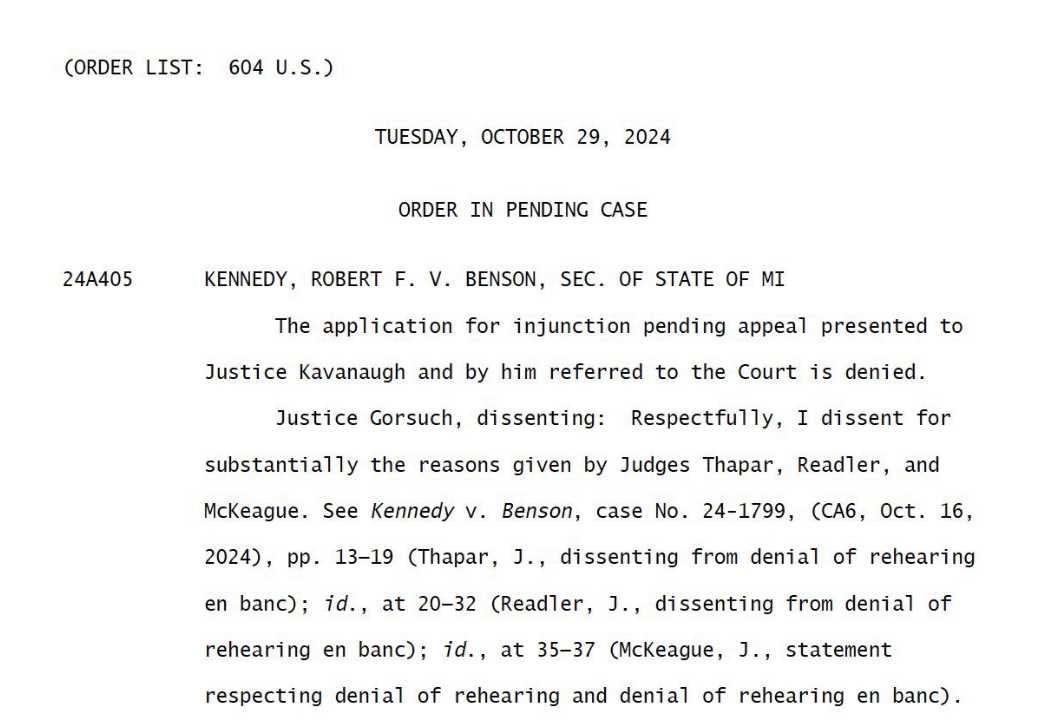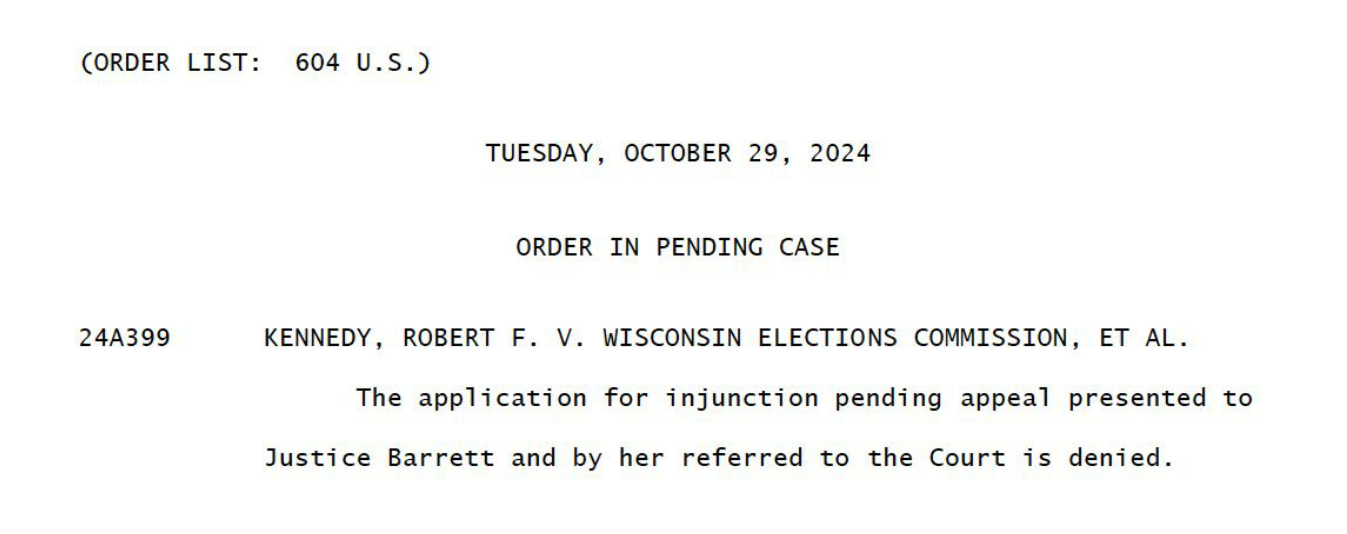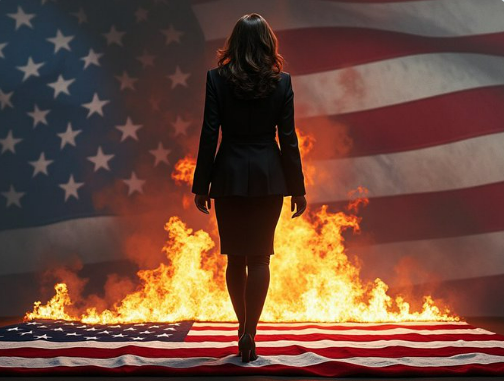NEW: The U.S. Supreme Court rejects separate appeals by Robert F. Kennedy Jr. to remove his name from the ballots in Michigan and Wisconsin—a move supported by former Pres. Trump. The Court does not provide a rationale, but Justice Gorsuch dissents in the Michigan case. – Alex Salvi
- RFK Jr. sought to challenge limitations he claimed hinder independent and third-party candidates, particularly those running as independents.
- His case argued that restrictive ballot access laws favor established parties and undermine fair democratic processes.
- The Supreme Court’s refusal effectively upholds existing state-level laws on ballot access, which can vary widely across the U.S.
- Kennedy’s legal team argued that these laws disproportionately impact independents, making it difficult for them to gain visibility.

- RFK Jr. cited examples of restrictive signature requirements and other rules that he believes unfairly favor major parties.
- The decision is a setback for Kennedy’s campaign, as he had hoped to leverage the case to streamline ballot access across multiple states.
- Kennedy’s supporters view the decision as another hurdle facing independent candidates in America’s two-party-dominated system.
- Many third-party advocates argue that the ruling underscores the need for ballot access reform to foster a more inclusive electoral system.
- The case highlighted the challenges faced by candidates without major party backing, as state laws can present significant entry barriers.
- RFK Jr. voiced concerns that these laws discourage political diversity and limit voters’ options in national elections.

- Proponents of reform believe that the ruling reflects institutional barriers that protect the interests of the Democratic and Republican parties.
- The Supreme Court’s decision did not include an explanation, which is typical in cases where they choose not to take up a petition.
- Some legal experts see the rejection as signaling the Court’s reluctance to intervene in state-level election laws at this time.
- Kennedy has stated that he will continue to advocate for changes to the electoral process despite this legal setback.
- The case drew support from various independent and third-party groups who see ballot access as a major impediment to fair representation.
- Advocates for reform argue that restrictive laws infringe on voters’ rights by limiting the number of viable candidates.
- The Supreme Court’s refusal also puts pressure on states to individually address or reform their ballot access laws if they choose.
- Critics argue that without federal oversight, inconsistencies in ballot access laws will continue to challenge independent candidates.
- RFK Jr.’s supporters are urging legislative reforms that could enable broader participation by independents and third-party candidates in future elections.
Want to know more?
Supreme Court rejects push to remove Robert F. Kennedy Jr. from ballot in two swing states (from @AP) https://t.co/Jtsf3sMoFa
— Howard Ballou (@HowardBallou) October 29, 2024
Stolen Liberties & Echoes of Freedom. 2nd American Revolution Begins – A short story by CK Sheldon, for Whatfinger News….
Chapter Links
Chapter 1 page 1
Chapter 1 Page 2
Chapter 2
Chapter 3
Chapter 4






